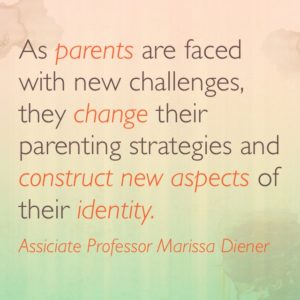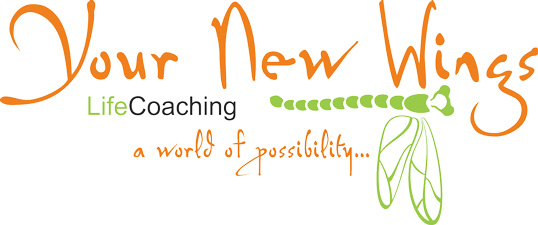Parental Development & Stages of Parenthood: We change as our children do

In my first Video Blog in March I spoke about parental transitions. Here I want to take a closer look at the developmental stages of parenthood and the transitions we undertake.
As parents we take on new roles as our children develop, transforming our parental identities as the developmental demands of our children change.
Because parents are critical to a child’s development a great deal of research has been focused on the impact of parents on their children. Far less is known, however, about the development of parents themselves and the impact of children on parents.
Parental Development
Parenting is a major role in an adult’s life and there are Six Stages of Parenthood:
1. The Image-Making Stage (pre-birth)
Prospective parents get used to the idea that they will become parents soon and what parenting will bring. They think about and form images of there roles as parents, what type of parent they want to be and may evaluate the relationships they have with their own parents as a model of their roles as parents.
2. The Nurturing Stage (child between birth & approx. 2 years)
The parent’s main goal during this stage is to bond with their baby.
Parents often have to reshape their conceptions of themselves and their identity as they work out how much time for the baby and how much time to devote to other aspects of life. Parenting responsibilities are the most demanding during infancy because infants are completely dependent on caregiving.
3. The Authority Stage (child between 2 and 4 / 5 years)
Parents decide what kind of authority to be, how rules are set, what rules are, when they are enforced and what happens when they are broken.
4. The Interpretive Stage (child approximately primary school age)
Parents respond to their children’s (easy and not so easy) questions and concerns as children are increasingly exposed to the world outside the family. This causes parents to review what they think, believe and value and to pull together their own beliefs so they can translate them to their children. This is a demanding and challenging process. Parents have to negotiate how involved to be with their children, when to step in, and when to encourage children to make choices independently.
5. The Interdependent Stage (child in teenage years)
Parents need to deal with many problems that they feel inexperienced in handling.
Two important facets to concentrate on:
- Communication with teenagers.
- Setting limits and giving guidance.
Parents must accept that the teenagers’ major task is developing a separate identity. Separation is a gradual process. Through this stage the parent / child relationship is redefined. The new relationship involves swinging backwards and forward between distance and closeness, separation and connectedness.
6. The Departure Stage (when the child leaves home)
At this time when the child leaves home parents evaluate the entire experience of parenting. They must redefine their authority and renegotiate their relationship with their adolescent child who is increasingly making decisions independent of parental authority and control. Parenting in this stage involves a complex set of tasks; caring, being available, helping without controlling, accepting the grown child’s’ separate identity. In accepting this separate identity, parents learn that to accept separateness implies the beginning of a new connection. This stage usually spans a long time period from when the oldest child moves away until the youngest leaves. The parenting role must be redefied as a less central role in a parent’s identity.
 Each of the above stages bring new challenges and things to learn for parents There is constantly a need for new strategies and techniques to support our children to grow through their own developmental stages. These stages also require different amounts of our time as parents, for example a newborn child requires 24 hour care, where as a teenager is often largely independent, but it is important for parents to be around an the ‘right’ times and this can be highly unpredictable. The key is to maintain a strong connection to your child while pursuing and fulfilling your own life’s desires. No small task!
Each of the above stages bring new challenges and things to learn for parents There is constantly a need for new strategies and techniques to support our children to grow through their own developmental stages. These stages also require different amounts of our time as parents, for example a newborn child requires 24 hour care, where as a teenager is often largely independent, but it is important for parents to be around an the ‘right’ times and this can be highly unpredictable. The key is to maintain a strong connection to your child while pursuing and fulfilling your own life’s desires. No small task!
Parental Transition
I see parenting transition as the movement between these phases of parental development. I myself and many of my clients are currently in the midst of parenting transitions and it is something that isn’t often talked about. When our children move from one phase to the next our focus (understandably) on them – their excitement, hopes and fears – but I would like to focus here on development and transitions for us as parents.
As my youngest son Ardyn is off to High School in September I find myself reflecting on how these big changes affect not only Ardyn, but also the entire family – as needs change, logistics are rearranged and our lives morph into a new version of daily life.
Small transitions are constant (such as being able to help out with tricker chores or as they grow from one size of clothing to the next), but the change becomes more apparent at these types of milestones. Inevitably parenting transitions as I see them are integrally linked to our children’s developmental stages and consequently our schooling system. Here is a brief summary of the major ones (although as mentioned this is really almost continuous and different for everyone).
- Becoming a parent
- Deciding to return to work (or not) after maternity leave
- Youngest child starting Primary School
- Youngest child starting High School
- Last child leaving home
Parenting is a complex process in which parents and children influence each other. The complexity in families further increases with additional children and sometimes complex adult relationships.
Knowing the best way to support our children as they develop can sometimes be challenging. But recognising that we are constantly growing and changing as parents as our children grow and change can help us give ourselves permission to not expect perfection, as we don’t expect perfection from them. Each new challenge we face is a new challenge for both us as parents and for our children.
If your child is coming up to a big transition soon, (e.g. starting primary school, starting high school or leaving home) know that you are in transition too and give it is natural to be feeling challenged. The best way to support your child through big transitions is to allow yourself the time and space to get a clear idea of what you want and need in the future yourself. This piece of mind for yourself allows you to be more relaxed, calm and able to be more fully focus on your child’s transitional needs. Above all remember to be gentle with yourself and your expectations through this complex time of new experiences and emotions.
It was because of my struggle through parental transition that I created my signature programme – The Revitalise Programme for Mums. I wish it had been around when I was in the midst of my struggles! It is specifically developed to help mums navigate this challenging but exciting time of transition.
I am working on a wall chart to more clearly show how the developmental stages and transitions fit together along with the common questions and decisions at each point. If you would like a free copy of the wall chart please email me tina@yournewwings.com and I will be happy to send it to you.
Yours in parenting
Tina Smith
References:
Diener, M.L. (2017). The developing parent. In R. Biswas-Diener & E. Diener (Eds), Noba textbook series: Psycology. Champaign, IL: DEF publishers. DOI:nobaproject.com (http://www.nobaproject.com)
Galinsky, E. (1987). The Six States of Parenthood. Cambridge, MA: Perseus Books
